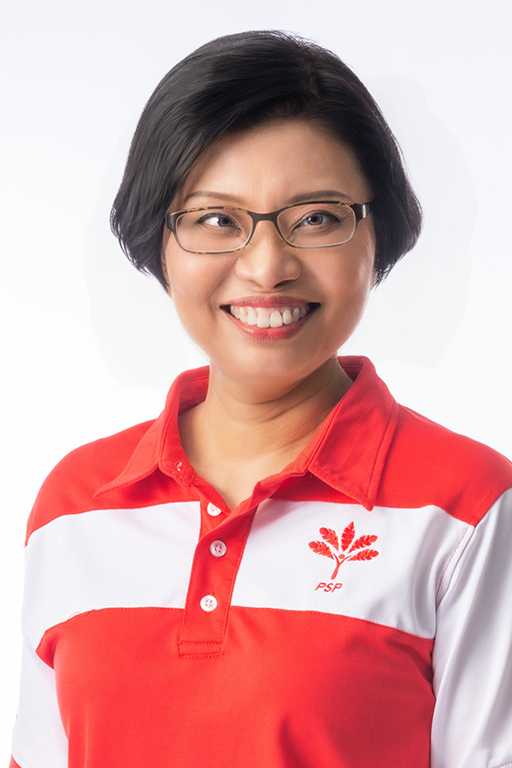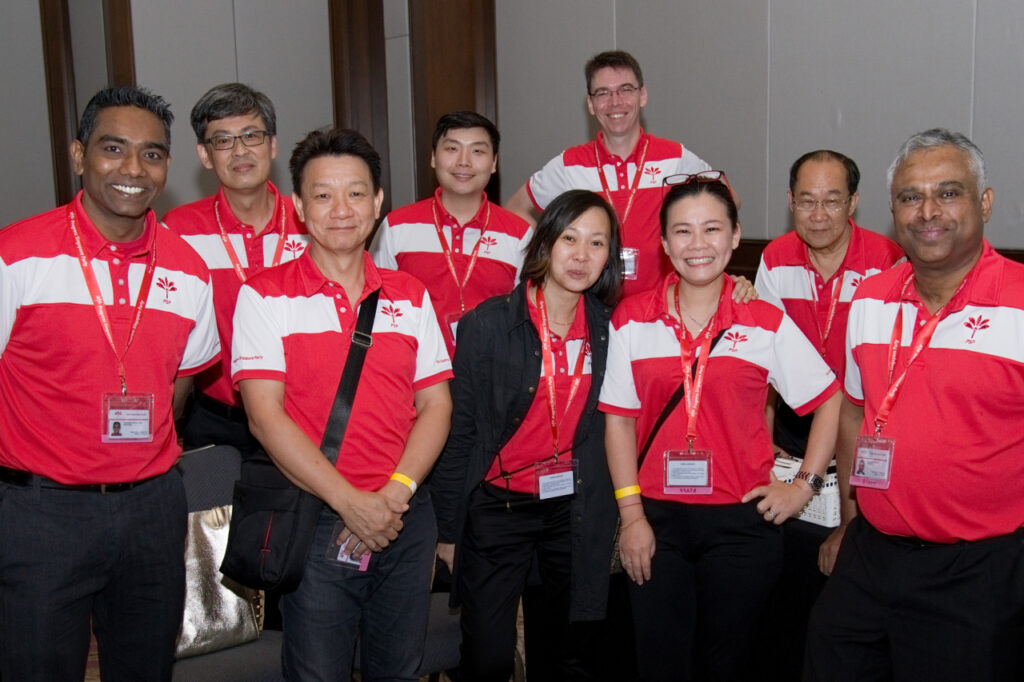MOF Speech
I echo the call by WP to exempt basic essentials from GST. To prevent the rich from also benefitting from such exemptions, we can set a price threshold. NTUC Fairprice housebrand rice sells for $1.40 per kg. We can therefore exempt rice that sells for under $2 per kg from GST. This way we prevent luxury goods from being included in the exemption.
FM said that additional cost would be incurred for having multi-tiered GST. Can the FM let us know how much cost is involved here? If we believe that in principle, basic necessities should be exempt to help the lower income households, then as Minister VB said 2 days ago when talking about the Ukraine war, we must be prepared to pay the cost for what we believe in.
Also, what does the FM expect the GST rate to be in 2030?
Can the FM also share with us how much the effective corp tax rate would have to be raised by to generate the same revenue as a 2% hike in GST?
The Finance Minister said earlier in his round-up speech that my example on land sales is simplistic because land sale will not stay stagnate every year.
I wish to clarify that is only an assumption made for the purpose of simplifying the illustration of the revenue stream. Varying land sales each year would result in a varying revenue stream but in no way invalidate the model. I am sure the FM is able to extrapolate from that illustration what are the variations that would result from a varying land sale.
Singapore will be not pressured to sell more land in order to generate more revenue in bad times.
This is because the revenue for each year is the cumulation of land sales over many years in the past, and the latest year’s land sale would have a small impact on the revenue.
For example, suppose year 10 is a recessionary year and land sales is only $50 instead of $100, then revenue generated from the land sale in year 10 is $2.50 instead of $5. However the revenue from previous years’ land sales remain unchanged, so the total revenue for the year is $47.5 instead of $50. A A 50% drop in land sale proceeds result in only a 5% drop in revenue because it is cushioned by the land sales in earlier years.
Conversely, any attempt to sell more land in any particular year would also have limited impact on the revenue for the year since it is spread out over many years. It is therefore a rather stable revenue stream.
Can I seek confirmation from the Finance Minister that, under current arrangement of HDB buying land from SLA, that the same piece of land acquired at low cost by the government in the past, will be sold repeatedly to HDB at prevailing land price? Does the same apply to JTC with respect to industrial land?
MOM COS Speech
Mr Chairman
CPF is our main social safety net. It can be used for housing, healthcare, education and retirement income. Self-employed persons do not have the benefit of employer CPF contributions. Their housing and retirement adequacy are areas of concern.
About one third of the 228,000 SEPs work for platform companies that assign delivery or transportation work to them. The UK Supreme Court decided to classify them as workers, a category between employees and self-employed, with some benefits like paid leave and pensions.
These gig or platform workers often engage in physically strenuous work with low entry barrier. And they also tend to earn less. The median monthly income of resident employees in 2018 was $4,000 for permanent employees but only $1322 for gig workers. Furthermore, delivery or transportation jobs have a high chance of being replaced by machines with advancements in technology in the not too distant future. Researchers in IPS warned of platform workers being caught in a poverty trap.
The Advisory Committee on Platform Workers was set up 6 months ago to look into better protection for platform workers. Can MOM provide an update on the progress of the committee and when can we expect the committee to make public their recommendations?
In addition, I would like to seek further information from MOM:
- What is the latest number of platform workers?
- What is their median age?
- How many are unable to meet the basic retirement sum now?
- For those who are unable to meet the BRS, what is their average CPF savings?
- How many are making CPF contributions voluntarily?
- How many have recently completed or are currently attending Skillsfuture courses to upgrade their skills?
I would also like to provide 2 suggestions.
The lack of CPF savings is a major concern. To encourage platform workers to make voluntary CPF contributions, can MOM consider a special scheme to allow them to voluntarily contribute CPF and withdraw their voluntary contributions on demand.
The income of gig workers is not stable. Due to this volatility, it is important to keep cash on hand. Gig workers are understandably hesitant about making voluntary CPF contributions over fears that when they need that money they cannot access it.
If, however, they have the flexibility of withdrawing those contributions when needed, they would be incentivised to contribute CPF to benefit from the higher interest rates offered by CPFB, as salaried employees do.
My second suggest is on training.
According to Grab, “Around 70 percent of our partners have expressed interest in attending training and skills development programs to improve in their current role, while two-thirds of our partners hope to leverage skills gained to transit into other career fields.”
Do platform companies have to pay SDF for their platform workers? If not, can MOM consider making platform companies contribute SDF and use these funds to give extra training support to platform workers?
公积金是我们主要的社会安全网。它可用于住房、医疗保健、教育和退休收入。平台工作
人员公积金不足,是我们关心的问题。
这些零工或平台工人经常从事体力劳动,收入也往往比较少。此外,在不久的将来,交付或运输工作很有可能被机器所取代。
对此,我想提供两个建议。
为了鼓励平台工作者自愿缴纳公积金,人力部可否考虑一项特殊计划,让他们可以随时提取自愿缴交的公积金?
平台工作者收入不定,如果他们可以在需要时灵活地提取这些公积金,会让他们少一些顾虑,并让他们也同雇员一样,享有公积金更高的利率。
我的第二个建议是人力部可否考虑让平台公司贡献 SDF,为平台工作者提供额外的培训支持?
谢谢
MOE Speech
Mr Chairman,
First of all, I declare that I run an education company operating education centres and a private school.
Today I wish to again urge MOE to consider implementing a pilot project of a 10-year through-train programme for primary and secondary school students, bypassing the PSLE.
MPs across time and political parties – Ms Paulin Straughan, Mr Hri Kumar, Mr Yee Jenn Jong, Ms Kuik Shiao-Yin, Mr Kok Heng Leun, Ms Denise Phua, and myself – have spoken up either for the scrapping of PSLE, or a through-train pilot programme giving parents and students the option of bypassing PSLE.
The PSLE remains the most stressful exam for local parents and children. Despite changes to the assessment, the PSLE stakes are high for parents, educators and students. Chronic stress from high stakes exams on young children is undesirable. Neuroscience tells us that long term negative stress impedes the brain development of children. These are bad outcomes for their esteem and mental health. Lately, tragic incidents have given us a rude wake up call to pay more attention to the mental well-being of our students.
Over the years, efforts have been made to reduce stress on students by removing examinations at certain levels, however, the PSLE is the elephant in the room.
Previous Education Ministers have said that “removing the PSLE and having a through train will only transfer the stress on parents and students elsewhere, such as at the P1 registration”.
But if the through-train programme is implemented in a limited number of schools while the mainstream is still on the PSLE system, this would not happen. This would at least give parents and students a choice. As we learn from the experience, we can decide later whether the through-train programme should be extended to more schools.
In Mandarin please.
今天,我再次请教育部考虑实施中小学的直通车试点计划。
过去十年,陆续有不同政党的议员呼吁政府废除小学离校考试或让父母和学生可以选择绕过它。
小学离校考试仍然是给予当地父母和孩子压力最大的考试。长期的负面压力会阻碍儿童的大脑发育, 对他们的自尊和心理健康带来不好的影响。最近,一些让人痛心的学生事件给我们敲响了警钟,提醒我们需要更加关注学生的心理健康。
前任教育部长曾表示,取消小学离校考试并进行直通车只会将家长和学生们的压力转移到其他地方,例如小一报名。但是,如果只在少数学校实施直通车计划,而大多数的学校仍然照旧,这种情况就不会发生。这样至少会给家长和学生们多一个选择。然后,在吸取经验后再决定要不要把直通车加以推广。
Student Initiated Learning
In 2020, MOE announced the introduction of student-initiated learning (SIL) in secondary schools, JCs and MI.
I would like to seek more information from MOE on this initiative.
- How many schools have implemented SIL?
- If there are schools that have implemented SIL last year, how was it implemented and what was the outcome?
PLD was rolled out last year. Can MOE confirm that no students are without access to PLD due to financial reasons? After 1 year of implementation, how has PLD affected the students’ learning?
Thank you.


